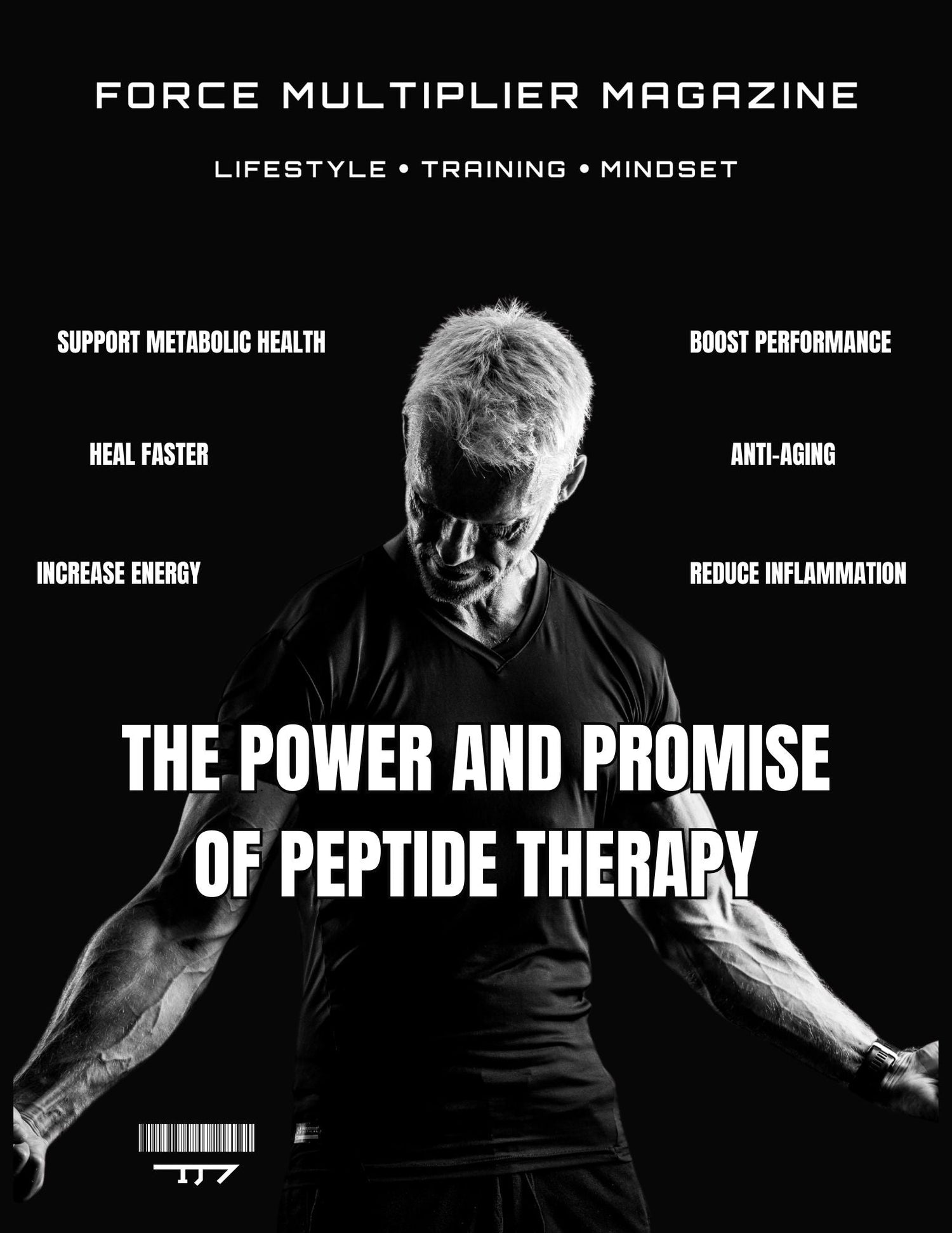Peptide therapy is an emerging frontier in medicine, harnessing the potential of short chains of amino acids to target specific biological processes. These naturally occurring or lab-synthesized molecules act as messengers, influencing hormone regulation, tissue repair, and more. This article explores the promise of peptides, highlights key peptides and their potential benefits, and outlines critical considerations before starting therapy.
What Are Peptides?
Peptides are short chains of amino acids, typically 2-100 in length, that serve as building blocks of proteins. Unlike complex proteins, their smaller size allows for precise targeting and efficient absorption, making them versatile tools for health and wellness. From anti-aging to muscle recovery, peptide therapy offers a tailored approach to optimizing bodily functions.
Key Peptides and Their Potential Benefits
Below is a list of notable peptides and their reported advantages:
-
BPC-157
-
Benefits: Promotes tissue repair, reduces inflammation, and supports gut health. Known for accelerating healing of muscles, tendons, and ligaments, it’s popular for injury recovery and may aid conditions like inflammatory bowel disease.
-
Applications: Wound healing, post-surgical recovery, and chronic pain management.
-
-
CJC-1295
-
Benefits: Stimulates growth hormone release, enhancing muscle growth, fat loss, and recovery. Improves energy, stamina, and mitochondrial function.
-
Applications: Athletic performance, anti-aging, and metabolic health.
-
-
Thymosin Beta-4 (TB-500)
-
Benefits: Encourages cell regeneration, angiogenesis (blood vessel formation), and wound healing. Reduces inflammation and supports tissue repair.
-
Applications: Muscle and joint repair, injury recovery, and immune support.
-
-
Semaglutide
-
Benefits: A GLP-1 receptor agonist that regulates appetite, boosts insulin secretion, and promotes weight loss. Enhances glucose and fatty acid metabolism.
-
Applications: Weight management, type 2 diabetes treatment, and metabolic health.
-
-
Sermorelin
-
Benefits: Stimulates natural growth hormone production, aiding muscle growth, fat loss, and energy. May improve sleep and overall vitality.
-
Applications: Hormone deficiency, anti-aging, and physical performance.
-
-
GHK-Cu (Copper Peptide)
-
Benefits: Boosts collagen production, enhances skin elasticity, and supports wound healing. Acts as an antioxidant and reduces inflammation.
-
Applications: Anti-aging, skin health, and tissue repair.
-
-
Ipamorelin
-
Benefits: Stimulates growth hormone release without significantly affecting cortisol or prolactin levels, promoting muscle growth, fat loss, and recovery.
-
Applications: Body composition, athletic performance, and vitality.
-
-
Thymosin Alpha-1 (TA-1)
-
Benefits: Enhances immune function by activating T-cells, aiding in infection resistance and recovery. May support immune dysregulation.
-
Applications: Immune support, chronic illness, and infection prevention.
-
-
Semax
-
Benefits: Neuroprotective peptide that improves cognitive function, focus, and memory. Enhances neuroplasticity and reduces oxidative stress.
-
Applications: Brain health, stroke recovery, and cognitive enhancement.
-
-
PT-141 (Bremelanotide)
-
Benefits: Acts on the nervous system to boost sexual desire via dopamine activation. Improves sexual function in men and women.
-
Applications: Sexual health and libido enhancement.
-
The Promise of Peptide Therapy
Peptide therapy’s precision makes it a game-changer. By targeting specific receptors, peptides can:
-
Accelerate healing and recovery from injuries or surgery.
-
Support weight loss and metabolic health.
-
Enhance skin elasticity and combat aging signs.
-
Boost muscle growth and athletic performance.
-
Improve cognitive function and immune response. With ongoing research, peptides show potential in treating chronic diseases, cancer, and neurodegenerative conditions, paving the way for personalized medicine.
Considerations Before Starting Peptide Therapy
While promising, peptide therapy requires careful planning. Key considerations include:
-
Medical Supervision: Consult a qualified healthcare provider to assess suitability, determine appropriate peptides, and monitor progress. Self-administration without guidance can be risky.
-
Individual Health Status: A thorough evaluation of medical history, current conditions, and lab work is essential to identify contraindications or underlying issues.
-
Purity and Source: Obtain peptides from reputable, regulated sources to ensure quality and avoid contamination, which could lead to adverse reactions.
-
Side Effects: Potential risks include allergic reactions (hives, swelling), injection site irritation, nausea, headaches, or hormonal imbalances. Be aware of signs and report them promptly.
-
Dosage and Administration: Peptides are delivered via injections, oral supplements, nasal sprays, or topical creams. Dosage and method depend on the peptide and goal—follow professional guidance for efficacy and safety.
-
Regulatory Compliance: Ensure peptides are compliant with FDA or other regulatory standards. Some peptides are not fully approved for all uses, and off-label applications require caution.
-
Lifestyle Factors: Combine therapy with healthy nutrition, exercise, and sleep for optimal results. Peptides are not a quick fix and work best with a holistic approach.
-
Limited Research: While promising, some peptides lack long-term studies. Efficacy and safety may vary based on genetics, lifestyle, and health status.
Conclusion
Peptide therapy holds immense potential to transform health, from healing injuries to enhancing vitality. With peptides like BPC-157, Semaglutide, and Thymosin Alpha-1, the possibilities are vast. However, safety and efficacy depend on professional oversight, quality sourcing, and a personalized approach. Before starting, consult a healthcare provider to explore if peptide therapy aligns with your goals and embark on a journey to better health.
Disclaimer: Always consult a healthcare provider before starting any supplement, especially if you have medical conditions or take medications.
The content contained in this article is for information purposes only, and is not meant to be a substitute or replacement for professional advice and medical consultation. It is just shared as information only, and with the understanding that Directional Force, LLC, (Directional Force) is not engaged in the provision or rendering of medical advice or services whatsoever. You unilaterally understand and agree that Directional Force shall not be liable for any claim, loss, or damage arising out of the use of, or reliance upon any content or information in this article or any article provided by Directional Force. Please seek professional medical advice prior to engaging in, or undertaking any of the content, exercises, advice, and workouts provided by Directional Force.



